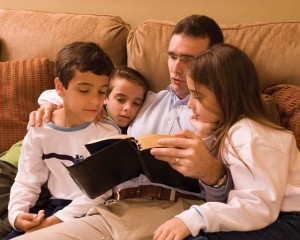I was raised in a family and culture that places tremendous value on sharing. I’ve in turn taught my children that sharing is good, that we need to share what we have whenever we can. I still believe in these values. I still believe that all of us can do a little more sharing of our time, our resources, our talents, and whatever else we are blessed with in this life. I will still continue to teach my children these values. However, I will also teach them that in certain situations, it is extremely wise not to share.
 P2P networking is not new technology. It’s been around for quite some time now. However, a recent conversation with a friend leads me to believe that many of us still aren’t quite sure what this is. That can be quite dangerous for you and your family.
P2P networking is not new technology. It’s been around for quite some time now. However, a recent conversation with a friend leads me to believe that many of us still aren’t quite sure what this is. That can be quite dangerous for you and your family.
P2P stands for peer-to-peer file sharing. P2P networks allows users that are connected to it to link to other computers in the world via the Internet. In a nutshell, this means that with the right software downloaded on our computers, anyone anywhere in the world can access any file stored on your computer. That’s right! All those files saved in your My Documents folder are vulnerable if you have a P2P application installed on your computer. So if you have personal information such as tax returns, banking information and other kinds of sensitive information stored on your computer you might be in for a nasty surprise some day.
The FBI posted a letter on their web site warning citizens about the dangers of P2P file sharing. One of the most dangerous misuses of P2P networks is the distribution of pornography. Unfortunately, many reports indicate that this is one of the common uses of peer-to-peer file sharing. Even if you have a filter installed on your computer, it may not necessarily catch files that are shared on peer-to-peer networks.
Minors are at high risk of being inadvertently exposed to pornography this way because they are among the highest users of P2P applications. Unfortunately, those who prey on our young kids know this. They are deliberately mislabeling their files so instead of getting music, children and teenagers get pornographic pictures instead.
A report by Jerry Ropelato, Founder and CEO of Top Ten Reviews, paints a bleak picture of what we are dealing with; “The next pornographic threat to the world, peer-to-peer networking, is a major challenge for parents being able to control the Internet content coming into the home. Children are very conversant and experienced in using peer-to-peer file sharing applications, while most parents are behind the curve. Parents need to understand the risks associated with allowing peer-to-peer file sharing in the home and to implement proper Internet filtering and parental controls. The war against pornography can and must be won.”
We’ve heard just about every one of our Church leaders today warn us against the evils of pornography. In a talk he titled “A Tragic Evil Among Us,” President Hinckley likened pornography to “a raging storm, destroying individuals and families, utterly ruining what was once wholesome and beautiful.”
There are many other dangers that come with the use of P2P applications. Viruses can be brought in this way. Anyone with enough technical knowledge and desire can plant a virus in one of these files. A virus as we all know can potentially crash your system and render it completely useless. Identity theft is another big threat since they can pretty much access whatever personal information you have stored in your computer files. Here is just one example of how thieves are taking advantage of peer-to-peer networks as reported by Tech News World.
There are many different P2P networks and applications. Most of them are free and can be easily downloaded with a few mouse clicks. Some of the most common peer-to-peer file sharing applications being used today include Limewire, Gnutella, Morpheus, Bearshare, and Kazaa. A lot of teenagers use applications like Limewire for sharing music. This practice may be illegal depending on whether or not the music they are getting from others is copyrighted. You and your teen will have to look into this and judge it for yourself.
I’ve only scratched the surface of what you need to know in order to protect your family from the dangers of peer-to-peer file sharing. You can easily get more detailed information on this topic online. Perhaps the lesson to be learned is this;

